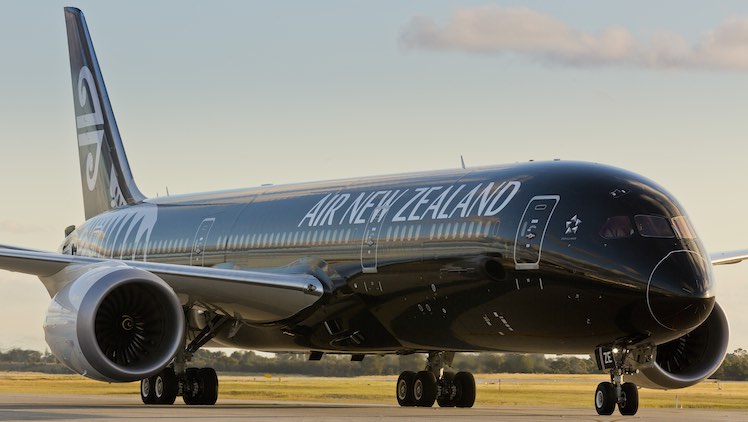
Air New Zealand says its run of yearly earnings growth is expected to end in 2017 amid new entrants on existing routes and currency changes.
The Star Alliance member has guided the market to earnings before taxation of more than NZ$800 million for the 12 months to June 30 2016.
If full year figures are in line with guidance, it would represent a fifth consecutive year of earnings before taxation growth and a big increase from the 2014/15 result of NZ$474 million.
However, that run was expected to end in 2016/17, with Air NZ forecasting “some near-term challenges ahead” as the airline dealt with increased competition on a number of fronts. Also, the airline said there would be a NZ$120 million impact on earnings from its foreign exchange hedges, given the benefits it received in 2016 were not expected in 2017.
Air NZ said in a slide presentation for its investor day on Tuesday it expected 2017 earnings to be “solid, while not at the level of 2016”.
“We see further opportunity for growth, but recognise the environment will be different,” Air NZ said.
Over the past two years, Air New Zealand has been in expansion mode, with long-haul services to Buenos Aires, Houston and Singapore launched in recent times and new destinations Osaka, Ho Chi Minh City and Manila are scheduled to take off later in 2016 as the airline looked to take advantage of the strong growth in visitor numbers to New Zealand.
The airline was on track to record an 11 per cent increase in capacity over 2015/16 with 64 per cent due to new routes and 34 per cent on existing routes.
And looking further ahead, Air New Zealand expected to grow capacity between eight and 10 per cent in 2017.
Air NZ said in its investor day slides capacity growth would be “in-line with New Zealand tourism growth” over the medium term.
However, other carriers are also keen to tap into the the local tourism market – Emirates recently commenced daily Auckland-Dubai flights, adding another option to Europe, the Middle East and Africa, while American and United (in partnership with Air NZ) are starting new nonstop service from Auckland to their respective US west coast hubs in Los Angeles and San Francisco, respectively, over the next two months.
And Qatar is also planning to commence Auckland-Doha flights from December.
A bit closer to home, there has been a slew of new fifth-freedom operators on the Tasman, with AirAsia X, China Airlines, Philippine Airlines, Emirates and, from September, Singapore Airlines offering an alternative to the Air NZ/Virgin Australia and Qantas/Emirates/Jetstar offerings.
And in its home domestic market, Air NZ is facing a big push from Qantas-owned Jetstar, which has started serving regional routes with a fleet of five 50-seat Dash 8 Q300s.
Air NZ said it expected some “headwind” to overall yields over the next 18 months while the market adjusted to the new capacity, while the revenue mix impact “related to simulation of leisure travel”.
“But revenue maximisation and profitable growth will continue to drive our strategy,” Air NZ said, adding the airline had the “flexibility to address the current competitive environment while executing the long-term strategy”.
At its 2015/16 half year results presentation in February, Air NZ said yields – the industry measure of average airfares per passenger – on its domestic network fell 3.9 per cent and were two per cent lower on its international operations. Yields on Tasman and Pacific Islands flights rose 2.7 per cent.
In terms of managing its own capacity amid this new environment, Air NZ said was reallocating some capacity from Los Angeles to Houston, given the new nonstop service to the Texas mining and oil hub that took off in December was “outpacing expectations”.
Its network was “firmly in sustainable growth mode”.
“Alliance partnerships underpin the growth opportunity,” Air NZ said.
Meanwhile, Air NZ offered few new details about what it planned to do with its shareholding in Virgin Australia.
The investor day slide presentation said Air New Zealand had ceased equity accounting for its 25.9 per cent stake in Virgin on March 30.
The airline announced on March 30 it was looking to sell all or part of its shareholding in Virgin, with Air NZ chief executive Christopher Luxon stepping down from the board.
“From 30 March 2016, our investment in Virgin Australia will be recognised as an investment in quoted equity instruments,” Air NZ said.




